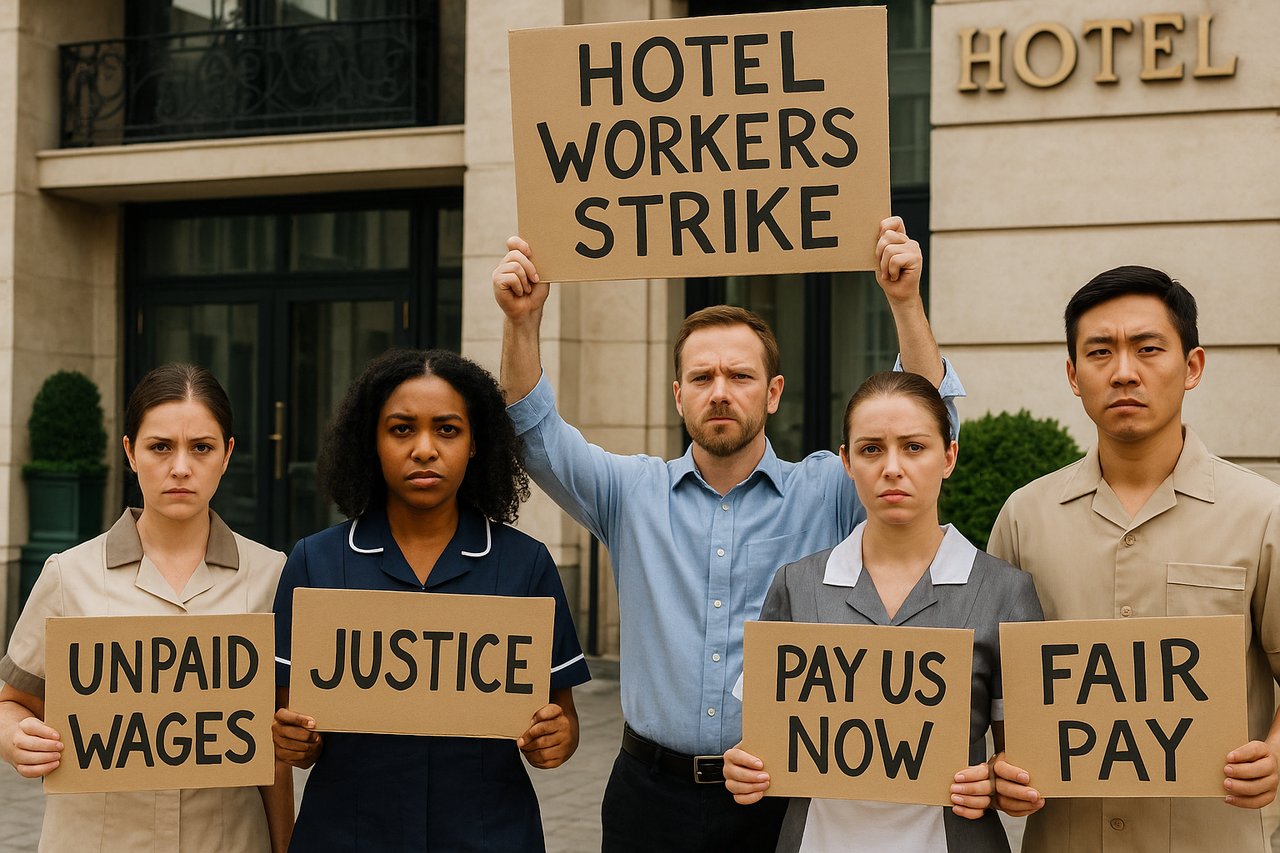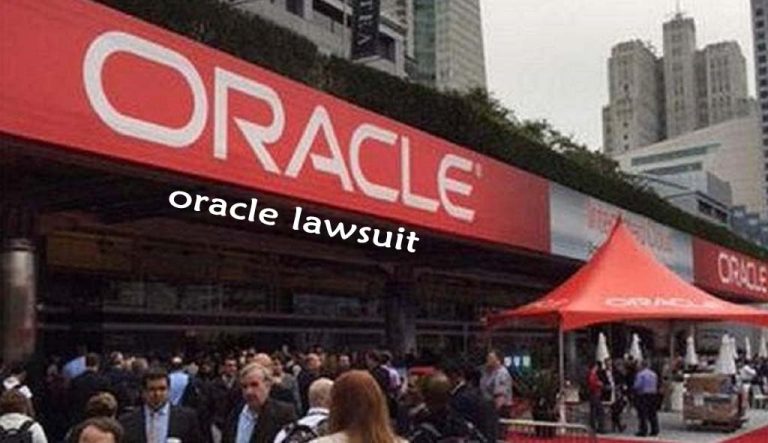Hotel Worker Unpaid Wage Lawsuits expose unfair pay in hotels nationwide. Recent news highlights major victories for housekeepers, front‑desk staff, and cleaners. Workers win back stolen wages. Policy changes follow enforcement. Investigations have revealed violations of overtime, tip, and classification rules.
This article unpacks top cases, lawsuits, legal context, worker rights, and enforcement trends. It provides clear guidance for hotel workers across cities. It outlines what courts enforce, shows how local laws matter and explains how settlements lead to pay reform. Also, it shows what you can do if you face wage theft. It ensures Hotel Worker Unpaid Wage Lawsuits stay in your mind.
What Are Hotel Worker Unpaid Wage Lawsuits?
Hotel Worker Unpaid Wage Lawsuits start when hotel staff suffer pay violations. Employers deny overtime, skip breaks, steal tips, or alter time records. Workers across roles—housekeeping, front desk, porters—face wage shortfalls—complaints hit under Fair Labor Standards Act (FLSA) or state wage laws. Federal law mandates payment for “principal activities.” Workers must be paid 1.5 times their regular wage after 40 hours (FLSA). States often offer stronger protections. Hotel lawsuits challenge records for off‑clock tasks. Many cases involve withheld tips or fake classification as independent contractors. Lawsuits seek back wages, penalties, and policy changes. Some firms deny violations yet still settle. These actions improve wage standards across the hospitality sector.
Why These Lawsuits Matter Today
Hotel staff carry hotel’s operations. They often clean dozens of rooms daily, work overtime and skip breaks. They deserve fair pay. Wage lawsuits matter because violations harm vulnerable workers. Lawsuits bring accountability. They highlight employer misbehavior, restore dignity and fairness, and force industrywide change. More importantly, they teach employers that compliance is a matter of importance. These lawsuits also prompt unions and city attorneys to take action. Many hotels now audit payroll and train managers. Ultimately, fair wages raise morale, reduce turnover, and improve service. Hotel Worker Unpaid Wage Lawsuits Push Both Justice and Reform.
Case Spotlight: $290K Settlement in Washington, D.C.
The D.C. settlement ranks as one of the top Hotel Worker Unpaid Wage Lawsuits.
What Happened?
Over 300 housekeepers cleaned rooms for clients of two cleaning firms. These firms held contracts for hotels in D.C. Workers often logged more than 40 hours weekly. Yet, firms failed to pay overtime at 1.5 times the regular rate. The union UNITE HERE Local 25 tipped off the Attorney General. The probe opened. It found violations dating back to January 2021. Firms appeared to operate as one employer. They denied wrongdoing. They nonetheless agreed to settle.
The Result?
They agreed to pay $215K to 323 workers. That equals nearly three times the withheld overtime. They paid $75K to D.C. in civil penalties and promised to train managers on wage law. They must inform all non‑manager staff of overtime rights and must submit a detailed compliance report within one year. The case serves as a warning to other contractors of the consequences. It also brings Hotel Worker Unpaid Wage Lawsuits into focus for advocacy.
Case Spotlight: Oakland’s Radisson Hotel Owes $404K in Wages
Oakland enforced its hotel wage law (Measure Z). This local rule establishes higher minimum wage standards in hotels.
Key Facts
One hundred twenty-eight hotel employees lost wages across months. The Radisson failed to follow Measure Z. Inspectors confirmed $404,491 in unpaid wages. Workers include housekeepers and front desk staff. Hotel operators ignored city‑mandated wage increases. As a result, employees earned less than the local law required. Oakland filed enforcement suits. The hotel agreed to compensate and update its payroll practices. This case illustrates how robust local laws benefit workers. Hotel Worker Unpaid Wage Lawsuits here used local wage rules to secure justice.
Case Spotlight: Pilgrim House Case—Over $500K in Alleged Theft
Pilgrim House is a hotel in Massachusetts. Owners face allegations beyond wage theft.
What’s Alleged?
Court filings allege misappropriation of over $358,000. New filings raised that to $507,000. Plaintiffs claim hotel owners used payroll funds for personal business and legal fees. At least six unpaid wage complaints have gone to the Massachusetts AG since 2021. Workers report missing shifts, incorrect overtime pay, and delayed checks. Performers and staff remain unpaid for months. One puppeteer worked entire seasons without compensation. This case merges wage theft and fraud claims. It also shows that wage theft often ties into broader financial misconduct. Hotel Worker Unpaid Wage Lawsuits in this case expand to include allegations of fraud.
Class Action Lawsuits Are Growing
Hotel Worker Unpaid Wage Lawsuits Include Class Actions in CA and NJ. They target employers asking staff to work off the clock. They challenge unpaid shifts and unpaid breaks and allege lost overtime pay, theft of tips, and misclassification.
Why Class Actions Matter
Class actions amplify impact. Groups of workers sue together. They reduce individual costs. They force systemic reform. Firms often settle to avoid class verdict risks. Settlements include back pay and changes to pay systems.
Current Efforts
Attorneys with ClassAction.org launched investigations in California and New Jersey. They seek staff stories to build cases. Lawsuits may include housekeeping, front desk, and cleaning crews. Workers may be entitled to lost wage recovery and may force policy changes. Local wage laws in California strengthen overtime rules. Hotel Worker Unpaid Wage Lawsuits here show how class litigation pushes change.
New York Case: 360K Won by Hotel Workers
In New York, a class action resulted in a recovery of over $360,000. Workers filed suit against multiple hotels. They alleged unpaid overtime and denied breaks. Many were immigrants and non‑union. Plaintiffs won over $360,000 in wages and damages. They also secured liquidated damages. This victory pressured hotels to audit payroll systems. It empowered other workers to speak up. Hotel Worker Unpaid Wage Lawsuits Often Start Small. They grow into city‑wide reforms.
Case Spotlight: Nazareth Overtime Claim
This is a single‑plaintiff FLSA lawsuit in Virginia.
What Was at Issue?
Muriel Nazareth and her late husband, Melwyn Noronha, sued under FLSA. They claimed 24/7 security duties at a motel. They were never paid overtime despite long hours. Litigation involved written discovery and negotiations. Defendants denied liability. Plaintiffs claimed significant unpaid time on the premises.
The Settlement
The court approved a full recovery of unpaid overtime wages and liquidated damages. Nazareth also recovered $29,214 in attorney fees and costs. That included $28,360 in fees at $397/hour and $854 costs. The court called the settlement fair and reasonable. It granted a full release. This case demonstrates that even solo workers can recover full FLSA remedies. Hotel Worker Unpaid Wage Lawsuits aren’t always class actions. They also protect the rights of lone staff.
Know the Law: What Workers Deserve
Workers gain rights under federal and state law. They deserve fair pay for their hours and duties.
| Right What | t It Means |
|---|---|
| Minimum Wage | Must earn the state or local minimum rate |
| Overtime | 1.5× pay once weekly hours exceed 40 |
| Tip Protection | Tips must go to eligible staff, not managers |
| Accurate Records | Employers must track actual hours honestly |
| Breaks & Meal Periods | Required in many states; unpaid work during breaks is invalid |
FLSA defines covered work broadly. It includes off-clock tasks, preparation, and cleanup. California rules require daily overtime after 8 hours. They also require double pay for past long shifts. Many states offer stronger rights than federal law. Hotel Worker Unpaid Wage Lawsuits succeed using both state and federal claims.
Common Tactics Employers Use to Avoid Paying
Some hotels use deceptive tactics. They hurt staff and violate the law.
- Misclassifying staff as independent contractors, avoiding overtime duties.
- Asking staff to clock out early yet continue performing work.
- Rounding recorded hours down to deny full pay.
- Deleting off‑clock tasks from timesheets to reduce labor costs.
These tricks reduce costs at the expense of the workers. Often, they affect immigrants or those with language barriers. Lawsuits show patterns of abuse. Courts award record audit relief and penalties. Hotel Worker Unpaid Wage Lawsuits expose hidden payroll fraud.
Fighting Back: What Workers Can Do
Workers deserve a remedy. These steps help build a successful claim.
1. Record Everything
Track hours, breaks missed, tips, and unpaid tasks. Use a notebook or an app. Note dates and durations.
2. Talk to Coworkers
Many are affected. Dialogue helps build group claims. It supports possible class lawsuits.
3. File a Complaint
Submit wage theft claims to the state labor board or the city attorney. Use union help or hotlines.
4. Find a Labor Attorney
Many law firms handle wage cases on a contingency basis. They advance fees and only charge if you win.
5. Join a Union or Worker Group
Groups like UNITE HERE help you organize. They support legal action and training. They raise public awareness and campaign for policy reforms. These steps reflect tactics behind successful Hotel Worker Unpaid Wage Lawsuits nationwide.
Major Cities Taking Action
Cities enforce wage laws and protect workers.
- D.C. uses AG‑led probes and union tips to secure restitution.
- Oakland enforces Measure Z, which governs local wage laws.
- The California Commission aggressively cites hotels, such as the Ritz-Carlton, for misclassification fines exceeding $2M.
- Fresno launched its first municipal wage theft suit against a hotel developer for $58K owed to construction/hospitality workers.
- The Los Angeles wage increase for hotel staff has been paused due to referendum petitions, but the wage rules remain in effect.
Local laws often exceed federal standards. Enforcement provides models for other cities. Hotel Worker Unpaid Wage Lawsuits Often Trigger Broader City Reforms.
Why Hospitality Workers Are Often Targeted
Hotel staff often work behind the scenes. Guests seldom see housekeepers or porters. That invisibility allows abuse. Many hotel workers:
- Speaks limited English
- Hold multiple jobs
- Fear of losing employment
These factors reduce reporting. That makes them vulnerable to wage theft. Lawsuit actions give voice. They often include immigrant workers or contractors. Workers who file help others gain confidence. Hotel Worker Unpaid Wage Lawsuits Challenge Systemic Abuses and Build Solidarity.
What This Means for the Hotel Industry
Lawsuits cost hotels money and reputation. They result in:
- Fines and settlements
- Required payroll audits
- Manager training and policy overhauls
- Public scrutiny through the press and unions
- Higher worker morale and lower turnover
Hotels that treat staff fairly often see better service ratings. They avoid legal costs. They improve guest experience. Investors look at social responsibility too. Hotel Worker Unpaid Wage Lawsuits Push Industry Standards Upward.
Policy Changes on the Horizon
New laws bring change. California strengthens misclassification enforcement. Los Angeles has raised the hotel minimum wage to $30/hour by 2028; implementation has been paused for review due to a referendum. Many cities now require tip transparency and per‑room workload limits. Public awareness campaigns, like California’s wage theft alerts, educate staff. Payroll tech adoption improves time tracking. Ongoing union and legislative pressure lead to new rules. Hotel Worker Unpaid Wage Lawsuits Help Build Momentum for These Reforms.
Hotel Worker Unpaid Wage Lawsuits: Final Thoughts
The Hotel Worker Unpaid Wage Lawsuits matter now more than ever. They fight for unfair pay across hotels. Workers recover lost wages. Cities enforce strong local laws. Courts demand changes in payroll systems. Firms face penalties and reputational risk. Workers gain dignity and rights. Legal standards evolve. Policy shifts strengthen enforcement. Every case reinforces the rule that fair pay is non‑negotiable. Hotel Worker Unpaid Wage Lawsuits Shine Light on Hidden Abuses. They deliver justice and push reform. If you suspect wage theft in a hotel job, act now. Keep records, speak out, and seek support. Your rights matter.
Ayesha Awais is a content writer for JudicialNexus.com, covering accident reports, injury-related news, lawsuits, and public safety updates. All content is informational in nature and based on publicly available sources.




